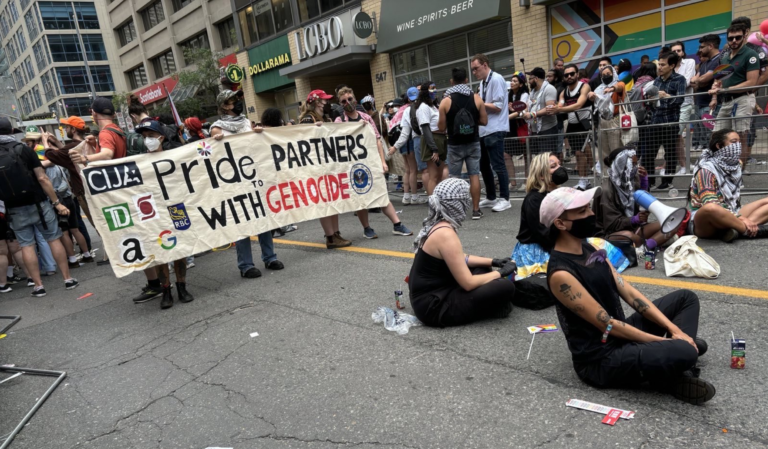Last November, Israel’s official social media accounts shared a photo of a smiling Israeli soldier proudly holding a rainbow flag amid the rubble in Gaza, where over 10,000 Palestinians – mostly women and children – had been killed in the weeks following October 7.
Written upon the multi-coloured flag – an iconic, decades-old symbol of LGBTQ+ pride – in English, Arabic and Hebrew, were the words “In The Name Of Love.”
The image quickly went viral. The soldier, a 31-year-old gay man, explained to the media that the Israeli military was “the only army in the Middle East that protects democratic values… it is the only army that allows LGBT people the freedom to be who they are, and therefore I fully believe in our goal.”
Meanwhile, on Instagram, Israel’s account described the image as an “attempt to raise the first pride flag in Gaza as a call for peace and freedom.”
But for many LGBTQ+ activists, and those struggling for Palestinian liberation, the incident represented an almost perfect example of “pinkwashing” – a term that refers to a state or organization’s attempts to use LGBTQ+ rights and symbols to distract or deflect attention from its harmful practices.



Imagine for a moment that you’re one of the many wonderful colours in the LGBT rainbow. You’re also a soldier and you’re fighting people who hate you for both your religion and your sexuality. You’re in a place where traditionally folks with your sexuality/gender identity would be systematically executed. Would you not also wear a rainbow pin and take a photo or two to commemorate that moment? To me it feels significant enough